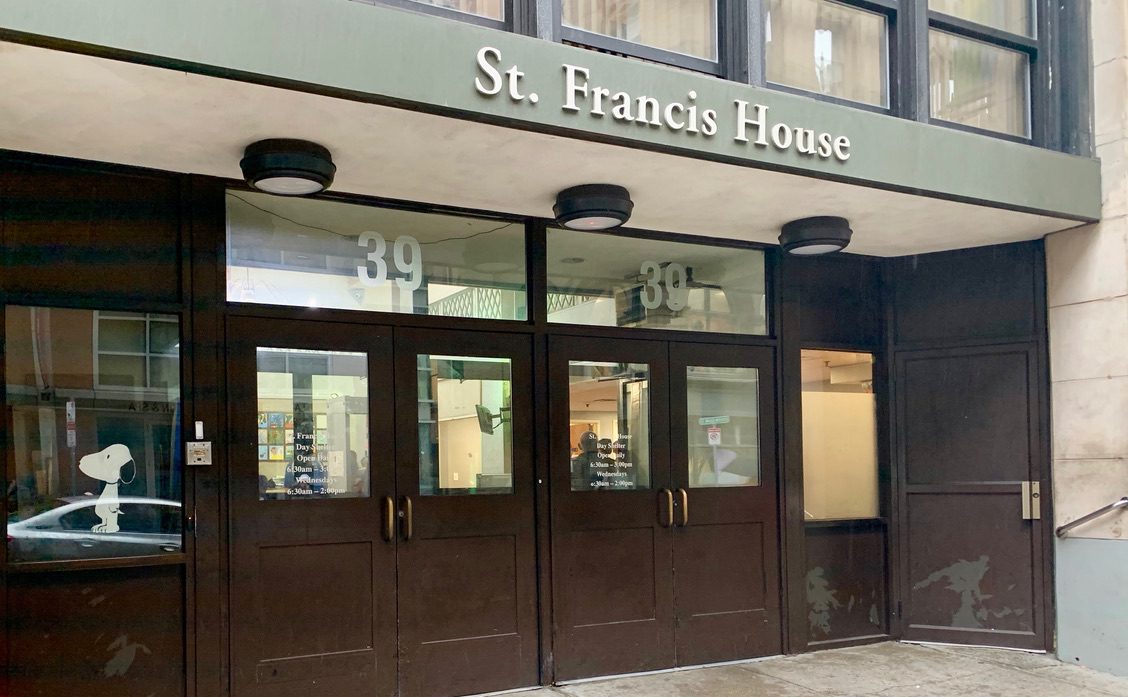 In the aftermath of the murder of George Floyd and the Black Lives Matter protests, and with growing awareness of events in American History like the Tulsa Race Massacre, St. Francis House has decided to add Juneteenth to its list of paid holidays. We aren’t alone. Across Boston and across the country, a growing number of organizations – private businesses, colleges and universities, state and local governments – now recognize Juneteenth as a holiday. For some, this means the day off. For others, it is a chance to take time to celebrate and learn more about Black history and Juneteenth’s historical significance. Last year, one local technology startup held a socially distanced company picnic with food catered by Black-owned restaurants. Major companies that now recognize Juneteenth as a holiday include large corporations such as Twitter and Nike. For all organizations now marking this day, it is an acknowledgement of its place in American history, and a call for people to be continually aware of the need for racial freedom and equality.
In the aftermath of the murder of George Floyd and the Black Lives Matter protests, and with growing awareness of events in American History like the Tulsa Race Massacre, St. Francis House has decided to add Juneteenth to its list of paid holidays. We aren’t alone. Across Boston and across the country, a growing number of organizations – private businesses, colleges and universities, state and local governments – now recognize Juneteenth as a holiday. For some, this means the day off. For others, it is a chance to take time to celebrate and learn more about Black history and Juneteenth’s historical significance. Last year, one local technology startup held a socially distanced company picnic with food catered by Black-owned restaurants. Major companies that now recognize Juneteenth as a holiday include large corporations such as Twitter and Nike. For all organizations now marking this day, it is an acknowledgement of its place in American history, and a call for people to be continually aware of the need for racial freedom and equality.
For many Americans, awareness of Juneteenth has been relatively recent. But for African Americans, the day became a holiday in 1866, just after the Civil War ended.
Also referred to as Freedom Day, Jubilee Day, Liberation Day, or Emancipation Day, this holiday celebrates the freeing of those who had been enslaved in this country. The “official” day for Juneteenth is June 19th, commemorating the day in 1865 when it was announced in Texas, by the Union Army, that slavery had ended in that state. This was a little over two months after Robert E. Lee’s surrender to Ulysses S. Grant at Appomattox Courthouse ended the Civil War, and over two years after the Emancipation Proclamation was signed. Slaves were freed on an ongoing basis by Union Troops during the War, but Texas was a remote outpost with few U.S. Army troops, so release of the slaves there was a drawn out process. Pockets of slavery existed in several states until 1865 when the 13th Amendment officially abolished this terrible practice.
Abolishing slavery did not, of course, result in the automatic acceptance of Black people as full citizens, nor did it eliminate the racism our nation still struggles with.
Juneteenth is a day for reflection on these struggles. But it is also a day for celebration. First commemorated with church gatherings in Texas, over time, observance of the day made its way across the South. By the 1970’s it had become a day that focused on African American freedom and, often, the arts. Today, it is celebrated in most large American cities with festivals, picnics, concerts, readings, and family reunions.
At gatherings, Lift Every Voice and Sing is often sung. Called the Black National Anthem, the words of this beautiful song are worth reflecting on:
Lift every voice and sing
Till earth and heaven ring
Ring with the harmonies of Liberty
Let our rejoicing rise
High as the listening skies
Let it resound loud as the rolling seaSing a song full of the faith that the dark past has taught us
Sing a song full of the hope that the present has brought us
Facing the rising sun of our new day begun
Let us march on till victory is won
At St. Francis House, we are proud to join with fellow organizations who celebrate this day – a day when we can honor the diversity of our staff and guests, and pay special honor to the African Americans among us. In anticipation of the holiday, our expressive arts therapist Gurleen Anand has decorated the St. Francis House art studio with posters, and is also offering guests the opportunity to color in pictures with Juneteenth and African themes.
While it is a holiday, St. Francis House will, of course, be open. We will be here, helping our guests with their basic needs, as we do 365 days a year. And whether we are working or enjoying a day off, we will each be thinking of Juneteenth and the significance it holds for each of us.



